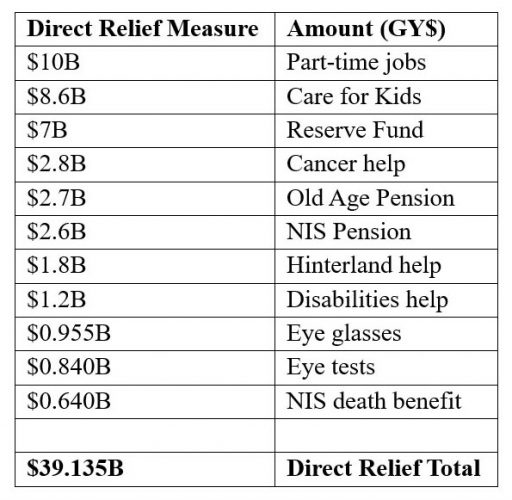Dear Editor,
Amid the continuing swirl of clashing positions on the priorities and provisions of the 2024 budget, I put something different before the public. My views on the 2024 budget are well known. It serves the objective(s) of this contribution better, if I let the facts and numbers speak for themselves. Thus, Guyanese in the divide would be better positioned to be for or against what is highlighted here, how the budget is seen and interpreted. It is likely that Budget 2024 may not be seen differently for various reasons good and otherwise. So be it.
In the post budget presentation and debates, amid the throes of the teachers’ strike, frequent were the insistent calls for the budget to be looked at in a holistic manner, and not in isolation, possibly cherrypicked selections, which introduces much sourness.
Holistic, as in its panoramic touch, universal considerations, certainly has a warm feel to it. I say, why not. I now reproduce some of the higher notes and finer points from Budget 2024. I ask in advance to be excused if some of the numbers are slightly off, or if some components with weight that would have made a difference are absent.
First, the $1.146T budget for 2024 is 46.6% more than that of 2023. The provision for Capital Expenditure is $666B, or 58% of the budget, up from $387.8B (or 50%) in 2023. Roads and bridges go to $204.1B in 2024 from $136.1B in 2023, up by 50%. As an aside, the increases in 2023 over the preceding two years followed close to the trend now extended into 2024. In a tight sentence, expenditure, as evidenced by the numbers, reflects the increases they did. Recall: just the facts and figures. No position, no commentary.
Second, there are ten (10) areas with supporting figures that inform citizens of this country what was provided for them as direct relief in this year’s national budget. They are as follows: 1) $10B for an expansion of part-time jobs; 2) $8.6B for children; 3) $7B to be held as a Reserve Fund, for the purpose of providing cost-of-living aid at the proper time; 4) $2.8B for cervical cancer assistance; 5) $2.7B to fund the monthly Old Age Pension increase; 6) $2.6B for NIS monthly pension increases; 7) $1.8B for hinterland help (testing, transportation, and so forth); 8) $1.2B for those with disabilities; 9) $0.955B for spectacles; 10) $.840B for eye tests; 11) $0.640B as an NIS death benefit. In tabular form, the direct budgetary provisions look like this:
The total direct relief of $39.135B to the hand and pocket of eligible citizens amounts to 3.4% of the $1.146T budget. If the $7B in reserve money is removed from the total direct relief funds, then what was identified for assistance falls to 2.8% of the 2024 budget. As a practical matter, the $7B should not be counted in the total for the simple reason that it does not appear to be earmarked for any distribution in the earlier quarters of this year. Nonetheless, whether 3.4% or 2.8%, I invite all Guyanese to make the comparison between direct relief provisions and those for either capital expenditure ($666B [58%]) or roads and bridges ($204.1B [17.8%]) from the budget. I stay silent.
In fairness, mention must be made of assistance that is provided for dialysis care, computers and sports equipment, through VAT and other eases, for which I am unable to locate specific numbers. Those play their part in less being spent, and relief extended. Further, in terms of indirect relief, there is the $40B for fuel subsidy, and $6B for freight charges. I am aware of some subsidy for electricity and water, but have no numbers. When the fuel and freight measures are added to the $39.135B direct relief, the total increases to $85.135B, which all in all is 7.4% of the 2024 budget.
Fuel, freight, and other indirect measures are invisible, but they impact positively; citizens have to come up with less out of pocket. So, this is what the facts and figures of this year’s budget are. In total, $85.135B or 7.4%, of relief provisions. I readily admit that there may be pockets of numbers not included in my arithmetic. While they certainly would contribute to raising the total relief package, the belief is that the sum would not be that material. I take no other liberties. Last, an invitation is extended to all of my fellow citizens to compare and contrast (and possibly comment) what was thought of, and put into place for the Guyanese people, versus what was allocated to nonhuman sectors. Over.
Sincerely,
GHK Lall











